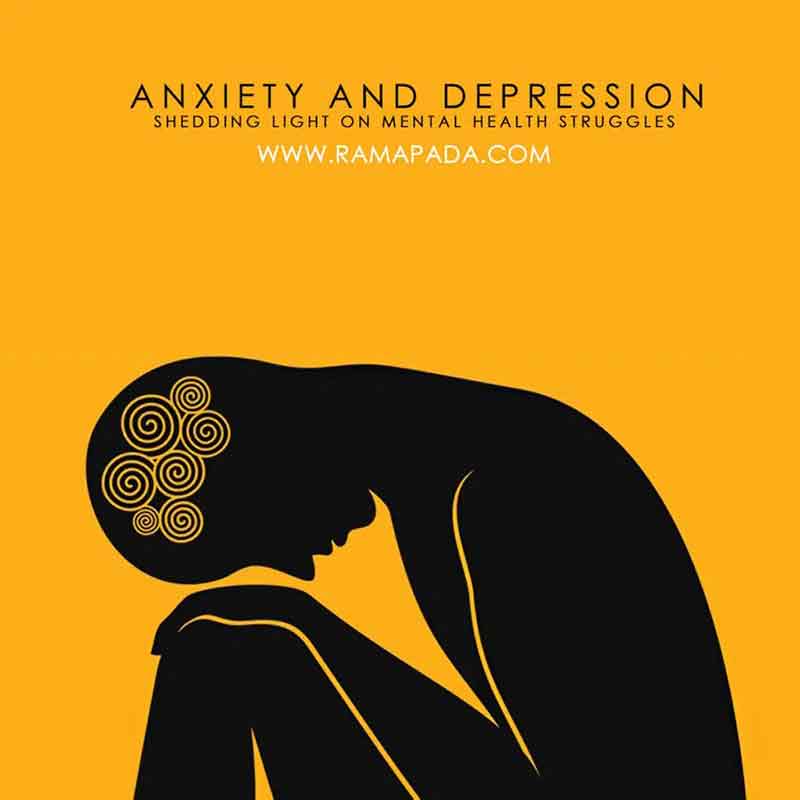In today’s busy world, many people struggle with anxiety and depression.
These are not just short-term feelings — they are real mental health conditions that can affect anyone, regardless of age, gender, or income.
This guide explains their causes, symptoms, and treatments and reminds us why mental health awareness is so important.
😰 What Is Anxiety?
Anxiety is a normal human response to stress or danger.
It helps us stay alert in tough situations.
But when anxiety becomes constant and overwhelming, it can turn into an anxiety disorder.
Types of Anxiety Disorders
- Generalized Anxiety Disorder (GAD)
- Panic Disorder
- Social Anxiety Disorder
- Phobias (specific fears)
Common Symptoms
- Too much worry or fear
- Restlessness or irritability
- Difficulty focusing
- Fast heartbeat, sweating, or trembling
Possible Causes
- Family history or genetics
- Chemical imbalance in the brain
- Stressful or traumatic life events
😔 What Is Depression?
Depression is more than feeling sad.
It is a long-lasting mood disorder that affects how you think, feel, and live your daily life.
Common Types
- Major Depressive Disorder
- Persistent Depression (Dysthymia)
- Postpartum Depression
- Seasonal Affective Disorder (SAD)
Symptoms
- Ongoing sadness or hopelessness
- Low energy and fatigue
- Changes in sleep or appetite
- Trouble concentrating
- Guilt or feelings of worthlessness
- Thoughts of self-harm (in severe cases)
Causes
- Family or genetic factors
- Long-term stress or trauma
- Serious illness or chronic pain
- Hormonal or chemical changes in the brain
💪 Treatment and Support
Good news—both anxiety and depression are treatable.
With the right support, most people recover and live healthy lives.
1. Therapy
- Cognitive Behavioural Therapy (CBT) helps change negative thoughts.
- Talking with a trained therapist can reduce stress and build coping skills.
2. Medication
- Doctors may prescribe antidepressants or anti-anxiety medicines.
- These help balance brain chemicals and control symptoms.
3. Healthy Lifestyle
- Exercise regularly 🏃♀️
- Eat nutritious food 🥗
- Get enough sleep 😴
- Practice mindfulness or meditation 🧘♂️
4. Support System
- Stay connected with family and friends.
- Join a support group or online community.
- Share your feelings — you are not alone.
💬 Why Mental Health Awareness Matters
Talking openly about mental health helps break the stigma.
When people understand that anxiety and depression are medical conditions, not weaknesses, they can offer compassion and support.
We must:
- Encourage open conversations
- Promote self-care and balance
- Create safe spaces for people to seek help
🌈 Final Thoughts
Anxiety and depression affect millions of people worldwide — but help is available.
By learning about these conditions and supporting one another, we can build a kinder, healthier society.
Remember: mental health is just as important as physical health.

